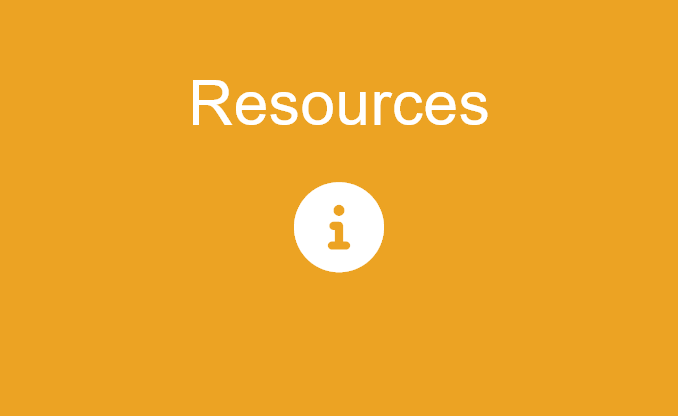Tips for Parents
PLEASE NOTE THAT THIS SITE WILL NO LONGER BE UPDATED.
PLEASE VISIT LEARNING DURING A PANDEMIC.
Supporting your Kindergarten – Grade 7 child – Considerations for families
+ Model your uncertainty and share your feelings.
Encourage your child(ren) to share their feelings. Reassure your child(ren) that you are keeping yourself and them safe and healthy by following guidelines.
+ Be open to a new way of learning.
Be patient and ease gently into it. This is a significant and sudden shift for everyone. Your child may be learning using online tools as well as with paper materials.
+ Routines are going to be different now.
It can be comforting to keep some consistency for your child during these challenging times, but it is natural that schedules will be modified as needed. Consistency might be difficult or impossible to maintain. Depending on your child and current situation at home it might be possible for you to invite your child to create a schedule or ‘shape of the day’ (agenda) for themselves. This might encourage them to take ownership of their learning. What are their interests/hobbies? What topics might they like to explore and learn more about (socially, culturally)?
+ Create a learning space that is as comfortable as possible for your child with their input.
Consider seating, lighting, music and access to basic materials (paper, writing tools, ruler — your teacher may be able to help with this). Be mindful of distractions, and access to available technology, etc. Sharing spaces, materials and technology with multiple members of the same household might be challenging and may not even be possible at times — what are some ways you might be able to accomplish this?
+ Connect with your children throughout the day.
Consider taking advantage of learning opportunities as they present themselves: Household tasks, games, cooking and baking, inviting your child to share their dreams, sharing cultural traditions, talking about topics that interest them. These, and more, are ways we can engage.
+ Talk to your children about their school assignments.
Avoid telling them what to do; rather ask questions that cause them to think or that steer them toward arriving at a solution on their own. If you are knowledgeable in an area, show them how they might do something by walking them through a similar question or problem and then have them apply that approach to their assignment.
+ Help manage demands
Teachers are paying attention to the amount of work they are assigning students as well as being mindful of other demands that students may be experiencing learning from home. If you are finding that your child is struggling with the various demands or you need some help, please communicate this with your child’s teacher(s). Teachers will be letting you know the best way to communicate with them.
+ Screen time will be used differently now.
Children may or may not be using online learning tools. If they are, make sure that there are frequent breaks. Although there are many wonderful online tools and resources, balance screen time by recommending reading a book, playing a game, drawing or encouraging safe outdoor activities. Limit news consumption, including social media that is negative. If learning will be occurring online, it might be difficult to ask children to limit screen time which may be a source of entertainment and connecting with friends.
+ Focus on healthy living.
Practice physical, emotional, and social wellness: exercise, eat well, stay hydrated, be positive, relax, and stay connected with friends and family (virtually).
- Start new positive habits that you’ve always meant to incorporate into your routines.
- Have a forgiving mindset, especially towards yourself -- be kind
- Know that you are not alone in feeling worried or overwhelmed
- Reframe the time away as a potential period of rest, rejuvenation and reflection
- Do things you enjoy, be positive and relax when possible
- Stay connected with friends and family (virtually and at home)
- Maintain physical distancing and follow all public health guidelines.
+ More tips for learning
Supporting your Grades 8-12 teen – Considerations for families
+ Model your uncertainty and share your feelings.
Encourage your teen(s) to share their feelings. Reassure your teen(s) that you are keeping yourself and them safe and healthy by following guidelines.
+ Be open to a new way of learning.
Be patient and ease gently into it. This is a significant and sudden shift for everyone. Your teen may be learning using online tools as well as with paper materials.
+ Routines are going to be different now.
It can be comforting to keep some consistency for your teen during these challenging times, but it is natural that schedules will be modified as needed. Consistency might be difficult or impossible to maintain. Depending on your teen and current situation at home it might be possible for you to invite your teen to create a schedule or ‘shape of the day’ (agenda) for themselves. This might encourage them to take ownership of their learning. What are their interests/hobbies? What topics might they like to explore and learn more about (socially, culturally)?
+ Create a learning space that is as comfortable as possible for your teen with their input.
Consider seating, lighting, music and access to basic materials (paper, writing tools, ruler — your teacher may be able to help with this). Be mindful of distractions, and access to available technology, etc. Sharing spaces, materials and technology with multiple members of the same household might be challenging and may not even be possible at times — what are some ways you might be able to accomplish this?
+ Connect with your teen throughout the day.
Consider taking advantage of learning opportunities as they present themselves: Household tasks, games, cooking, inviting your teen to share their dreams, sharing cultural traditions, talking about topics that interest them. These, and more, are ways we can engage.
+ Talk to your teens about their school assignments.
Avoid telling them what to do; rather ask questions that cause them to think or that steer them toward arriving at a solution on their own. If you are knowledgeable in an area, show them how they might do something by walking them through a similar question or problem, and then have them apply that approach to their assignment.
+ Help manage demands
Teachers are paying attention to the amount of work they are assigning students as well as being mindful of other demands that students may be experiencing learning from home. If you are finding that your teen is struggling with the various demands or you need some help, please communicate this with your teen’s teacher(s). Teachers will be letting you know the best way to communicate with them.
+ Screen time will be used differently now.
Your teen may or may not be using online learning tools. If they are, make sure that there are frequent breaks. Although there are many wonderful online tools and resources, recommend your teen balance screen time by recommending reading a book, playing a game, drawing or encouraging safe outdoor activities. Prioritize hanging out as a family together at some point in the day when you don’t discuss schoolwork; and limit news consumption, including social media that is negative. If learning will be occurring online, it might be difficult to ask your teen to limit screen time which may be a source of entertainment and connecting with friends.
+ Focus on healthy living.
Model and encourage practising physical, emotional, and social wellness: exercise, eat well, stay hydrated, be positive, relax, and stay connected with friends and family (virtually).
- Start new positive habits that you’ve always meant to incorporate into your routines.
- Have a forgiving mindset, especially towards yourself -- be kind
- Know that you are not alone in feeling worried or overwhelmed
- Reframe the time away as a potential period of rest, rejuvenation and reflection
- Do things you enjoy, be positive and relax when possible
- Stay connected with friends and family (virtually and at home)
- Maintain physical distancing and follow all public health guidelines.
Elementary Students: Assessment of Learning
Continuity of Learning
- Learning Together: A partnership between families and educators
- Learning in a New Space: A journey with many pathways of curiosity and exploration
- Learning for All: An opportunity for engagement and connections for all students
The Questions and Answers below provide details about assessment and reporting.
For more information visit our assessment and reporting section of our website here
For additional details about learning from home, see our resource hub here
+ Will students receive report cards?
Yes. Teachers will prepare year-end summative report cards in June using the same format as the January mid-year report.
+ Will report cards have a different format or assess only selected work?
Each student will receive a report card in June outlining their achievement in each of their courses. Achievement will be described using the same format as was used in the January mid-year report. Students will still complete a self-assessment about their learning.
+ Will each subject area be reported on?
Since March break, teachers have been focussing on the area of Literacy (reading and writing) and Numeracy and are assessing students based on available evidence of learning in relation to essential Learning Standards. For subject areas where there could be no instruction and assessment following spring break, the student’s final standing will reflect assessment of evidence of learning up to March 13.
+ Will report cards have a mark for the period before in-class suspension began and for this learning from home period?
Report cards will use the same format as those provided earlier in this school year. Report cards will include results for learning throughout the school year. Marks will not be lower than what they would have been as of March 13, 2020. Higher marks may be provided based on a child’s progress and improvements.
+ How will final marks reflect what they would be if classes continued as normal without the disruptions of learning from home with fewer assignments and instruction time with teachers?
Teachers will determine a final grade for students based on work completed throughout the school year which includes assessment of learning from home. Teachers will also factor in students’ learning needs and family circumstances when determining marks.
+ Will all children advance to the next grade, regardless of their ability to continue with school work from home?
All students who were on track to move to the next grade prior to the suspension of in-class instruction will do so. The June report card will include your child’s next grade level.
+ My child has special learning needs and had in place an Individual Education Plan and the support of an SSA prior to March break. Without being in class, my child’s learning is negatively impacted. Will progress reports/report cards just assess in-class work so marks don’t suffer?
Reports will reflect progress both before March Break with the various in-class supports, and indicate progress achieved during the suspension of in-class instruction. They will also include progress toward the IEP goals. Teachers will use their professional judgement to assess this progress in consideration of each individual student’s learning needs, their at home learning circumstances and context, and supports in place as they learn from home.
+ What if my child was not on track to advance to the next grade in before March break and needed more time in class to do so by June?
Teachers will consider those students whose learning needs or circumstances may require unique approaches to assessment. Please contact your child teacher or principal if you have more questions about the support your child needs.
+ What are the expectations of students for doing homework or completing assignments at home and how will that impact their final grades?
To the extent possible, students are expected to:
- Participate in learning opportunities provided by teachers.
- Be responsive to communications from teachers.
- Complete assignments and requirements as reasonably set out by their teachers.
- Teachers will determine a final grade for students based on work completed throughout the school year which includes assessment of their learning from home. Teachers will also factor in students’ learning needs and family circumstances when determining marks.
+ My child is struggling with learning from home. What can we do to ensure they move on to the next grade?
Please contact your child’s teacher or principal to discuss your child’s needs and supports they can provide.
Secondary Students: Assessment of Learning
Continuity of Learning
- Learning Together: A partnership between families and educators
- Learning in a New Space: A journey with many pathways of curiosity and exploration
- Learning for All: An opportunity for engagement and connections for all students
The Questions and Answers below provide details about assessment and reporting.
For more information about learning from home, see our resource hub here
For additional details or questions about your child’s learning, please contact your child’s teachers or administrator.
+ Will students receive report cards?
Yes. Teachers will prepare year-end summative report cards in June.
+ Will report cards have a mark for the period before in-class suspension began and for this learning from home period?
Report cards will include results for learning throughout the school year. Marks will not be lower than the cumulative grade the student would have attained as of March 13, 2020. Higher marks may be provided based on a child’s progress and improvements.
+ How will final marks reflect what they would be if classes continued as normal without the disruptions of learning from home with fewer assignments and instruction?
Teachers will determine a final grade for students based on work completed throughout the school year which includes assessment of learning from home. Teachers will also factor in students’ learning needs and family circumstances when determining marks.
+ What are the expectations of students for doing homework or completing assignments at home and how will that impact their final grades?
Students are expected to continue their learning in each of their courses and to complete assignments and requirements set out by their teachers to finish the course. Students are also expected to participate in learning opportunities provided by teachers and be responsive to communications from teachers.
+ My child is struggling with learning from home. What can we do to ensure they move on to the next grade?
Please contact your child’s teachers or principal to discuss your child’s needs and supports they can provide.
+ Will students in grades 8-11 advance to the next grade, regardless of their ability to continue with school work from home?
All students who were on track to move to the next grade prior to the suspension of in-class instruction will do so. The June report card will include your child’s next grade level.
+ When will my child be able to take the assessments for graduations?
The graduation assessment required for current Grade 12 students is the Grade 10 numeracy assessment. More information about the Grade 10 numeracy assessment for future years’ graduates will be provided as soon as they are available.
+ What if my child was not on track to advance and needed more time in class to do so by June?
Teachers will consider those students whose learning needs or circumstances may require unique approaches to assessment. Please contact your child teacher or principal if you have more questions about the support your child needs.
+ Will students in Grade 12 graduate?
Every student who is eligible to graduate from Grade 12 and who was on track to do so this year will graduate. In collaboration with school administrators, teachers will plan to provide additional support for students who need it to meet graduation requirements.
+ My child is in Grade 12 and is on track to graduate but has not completed the Grade 10 numeracy assessment. Will my child be able to take the assessment in time to graduate?
Grade 12 students who have not yet completed this assessment and who are otherwise on track to graduate will be able to meet this graduation requirement. Please contact your school principal to follow up about the assessment.
+ When will students receive transcripts for graduation?
Transcripts remain available to students through the Ministry of Education’s Student Transcript Service. Updates with interim marks will be available May 6. Final transcripts will be available on the usual schedule.
+ Will Grade 12 students have more time to apply to Universities and Colleges?
The Ministry of Education is working closely with the Ministry of Advanced Education, Skills & Training to support smooth transitions to post-secondary education for students.
Please find tips in two sections:
- Kindergarten – Grade 7 children
- Grades 8-12 teens
We all need each other right now and we can create some positive memories amidst the chaos. It might be a great time to have a phone or “virtual” conversation and reconnect with family and friends. Consider reaching out to extended family, neighbours or those in your community by phone, email, social media or letter. Sidewalk chalk messages, hearts on windows and tags on construction fences with heartfelt words or phrases, shopping for neighbours and 7pm front door ‘shout out tribute and cheer’ for frontline workers all show hope and optimism, and can give voice to children and a feeling of contribution. These connections will help us make it through the upcoming weeks. Thank you for your ongoing support of your children.





